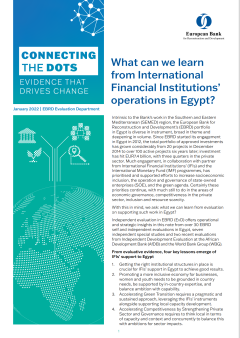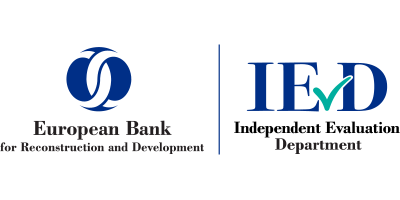
Connecting the Dots | What can we learn from International Financial Institutions’ operations in Egypt?
Intrinsic to the Bank’s work in the Southern and Eastern Mediterranean (SEMED) region, the European Bank for Reconstruction and Development’s (EBRD) portfolio in Egypt is diverse in instrument, broad in theme, and deepening in volume. Since EBRD started its engagement in Egypt in 2012, the total portfolio of approved investments has grown considerably from 20 projects in December 2014 to over 100 active projects six years later; investment has hit EUR7.4 billion, with three quarters in the private sector.
Much engagement, in collaboration with partners from International Financial Institutions’ (IFIs) and the International Monetary Fund (IMF) programmes, has prioritised and supported efforts to increase socioeconomic inclusion, the operation and governance of state-owned enterprises (SOE), and the green agenda. Certainly these priorities continue, with much still to do in the areas of economic governance, competitiveness in the private sector, inclusion, and resource scarcity.
With this in mind, we ask: What can we learn from evaluation on supporting such work in Egypt? Independent evaluation in EBRD (EvD) offers operational and strategic insights in this note from over 30 EBRD self and independent evaluations in Egypt, seven independent special studies and two recent evaluations from Independent Development Evaluation at the African Development Bank (AfDB) and the World Bank Group (WBG).

